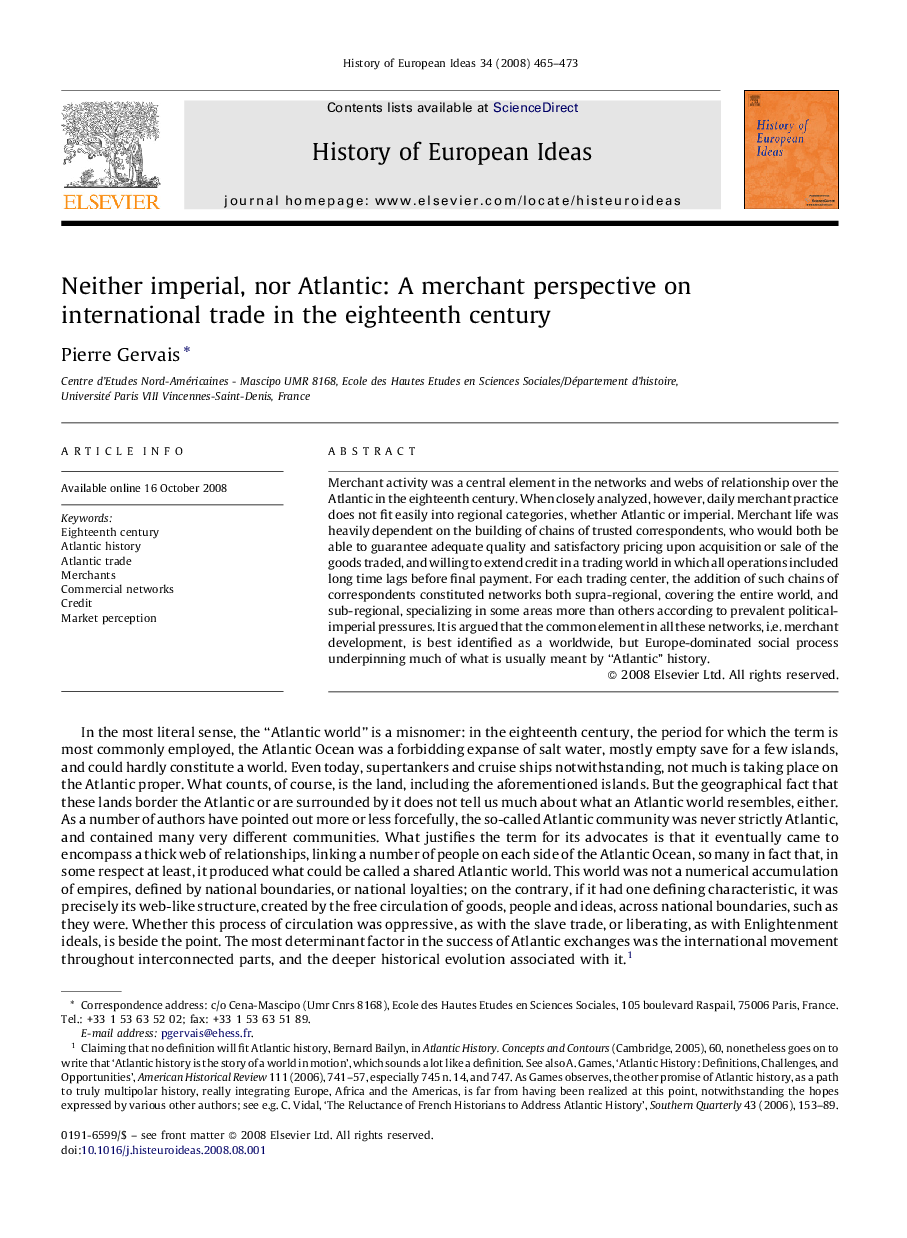| Article ID | Journal | Published Year | Pages | File Type |
|---|---|---|---|---|
| 1159134 | History of European Ideas | 2008 | 9 Pages |
Merchant activity was a central element in the networks and webs of relationship over the Atlantic in the eighteenth century. When closely analyzed, however, daily merchant practice does not fit easily into regional categories, whether Atlantic or imperial. Merchant life was heavily dependent on the building of chains of trusted correspondents, who would both be able to guarantee adequate quality and satisfactory pricing upon acquisition or sale of the goods traded, and willing to extend credit in a trading world in which all operations included long time lags before final payment. For each trading center, the addition of such chains of correspondents constituted networks both supra-regional, covering the entire world, and sub-regional, specializing in some areas more than others according to prevalent political-imperial pressures. It is argued that the common element in all these networks, i.e. merchant development, is best identified as a worldwide, but Europe-dominated social process underpinning much of what is usually meant by “Atlantic” history.
